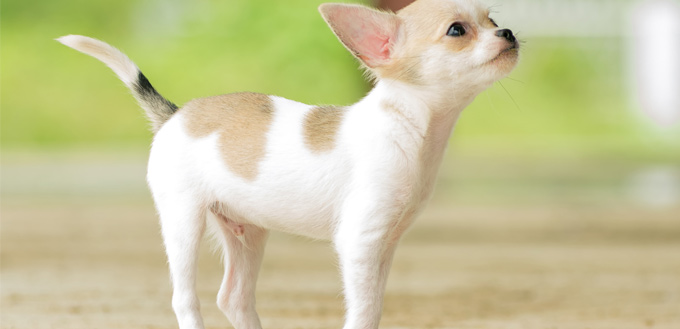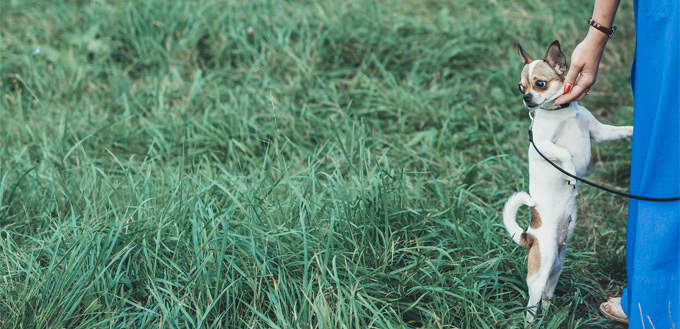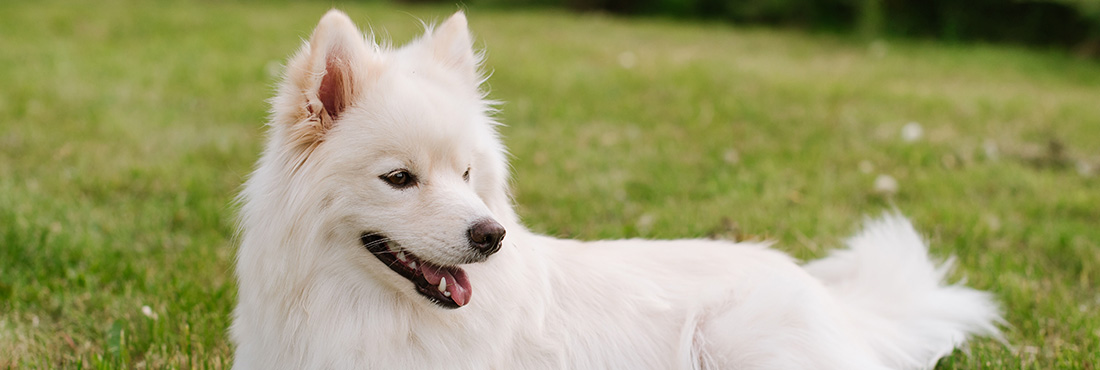You may see the Teacup Chihuahua referred as a new breed of companion dog but it is actually not a new breed at all. The term ‘Teacup Chihuahua’ actually describes a Chihuahua that is smaller than the regular dogs of the breed. There is no standard for how small a Chihuahua has to be for it to be classed as ‘Teacup’.
There will inevitably be variations in size in any breed and traditionally, the smallest member of the litter was called the runt. By referring to them using a more attractive name such as ‘mini’, ‘micro’, or ‘teacup’, breeders have found a way of making these smaller dogs appear special and desirable and therefore expensive!
It’s easy to fall in love with these undeniably cute little dogs but should you choose one as your pet? Here’s a concise guide to what you should know about TeaCup Chihuahuas if you are considering getting one for yourself.

History of the Teacup Chihuahua
There is some debate about the exact origins of the Chihuahua but there is no doubt that it is an ancient breed. They are named after an area of Mexico; however, this is not necessarily where they originated.
There is evidence that the ancient Toltec civilization that dominated Mexico a thousand years ago bred a larger and heavier version of the Chihuahua which was called the Techichi. The Aztecs refined the Techichi to make it smaller and lighter. They survived the invasion by the Spanish conquistadors and were discovered by American explorers in the 1800s who named them after the region where they were first found.
The very first Chihuahua was registered by the American Kennel Club in 1908 but their popularity surged in the 1940s and 1950s. They became even popular in the last decade or so thanks to appearances in films such as Beverly Hills Chihuahua and Legally Blonde.
The Teacup Chihuahua is a more recent arrival. Over the last decade or so, some breeders have purposely selected smaller dogs to breed. It is not an officially recognized type of Chihuahua breed and sizes can be unpredictable. A pup that is small for its age may just be failing to thrive at that point in time and could grow to be a very large chihuahua! There are also concerns about the ethics of breeding from the smallest, and therefore possibly the least healthy, members of a litter.
Who Are the Parents?
As it is not a hybrid breed, both parents will be Chihuahuas which is a cheeky little breed. They move quickly and are very like terriers in temperament. There are two varieties – the long-coat and the smooth-coat. The long-haired pooches will need regular grooming. They need little exercise and can comfortably live in small houses or apartments.
They are alert and highly intelligent. However, they can be aggressive. Some take advantage of their cuteness and bad habits can creep in.
On the whole, the breed suffers from several health problems so it is always important to make a thorough investigation of the health status of both parents. A reputable breeder will not mind you asking to see the parents or ask for health certificates. Because of their size, any potential health problems can be exacerbated in teacup dogs. It is also a good idea to meet both Mom and Dad because there could be some aggression issues with either.
It is wise to ask if the breeder has carried out genetic health screenings for patent ductus arteriosus and mitral valve disease which are both heart defects. Tests should also have been carried out for susceptibility to corneal eye disease and patellar luxation.
Quick Facts
To get you familiar with this feisty little breed, here are five quick facts about the Teacup Chihuahua that you should know:
- Larger Chihuahuas live for between 15 and 20 years however the common health issues that can be suffered by the teacup version means that the average life expectancy is considerably shorter.
- There is no recognized size for a Chihuahua to be designated as a teacup. Even when fully grown, a micro teacup Chihuahua may only weigh 3 lbs and grow to 6 inches tall.
- Teacup Chihuahuas can be long-haired or smooth-haired. The long-haired varieties have a coat with a soft texture and sometimes a wave.
- Both the long-haired and smooth-haired dogs are prone to getting cold quickly because their tiny bodies cannot retain heat.
- Chihuahuas can be a wide variety of colors including black, fawn, chocolate, or white. They can also be a number of color combinations that occur in a brindle, mask, or sable pattern.

Things You Should Know
When it comes to buying a Teacup Chihuahua it is important to separate fact from fiction. Unfortunately, there are unscrupulous breeders out there who seek to make money out of these very small dogs and unsuspecting owners. There are questionable ethics involved in selecting very small dogs and breeding them to produce an even smaller dog. Before you commit to getting one of these cute little doggies yourself, here are a few things that you should know.
Training
Chihuahuas can be quite independent but most are devoted to their owners and will enjoy the attention that a training session brings.
They are both alert and intelligent and respond well to positive training techniques. It is important to make it clear from the outset that you are in charge because some can be bossy and almost aggressive. Spoiling a Teacup Chihuahua is a big mistake because they will grow up to be an adult with bad habits. They have terrier elements to their temperament so a firm but gentle approach works best.
It is possible to house-train them but because they are so small they can have great difficulty holding onto poo and wee for any length of time so little ‘accidents’ will become a part of your life whether you like it or not. Be prepared for many toilet breaks!
Feeding
You have to be extremely careful what you are feeding a Teacup Chihuahua. Even a very small amount of chocolate, chewing gum, or other toxic substance could be fatal. They are extremely vulnerable to poisoning.
They need to be fed high-quality food that is appropriate for their age. Even the teacup dogs are prone to obesity so it is best to limit treats to training and to avoid giving scraps from the table.
Dental health can be a concern with this breed as they suffer from crowding of their teeth which encourages decay. You can help by giving them a healthy diet and avoiding sweet treats and foods with a high sugar or carbohydrate content.
You May Also Like: Dog Food for Chihuahuas
Exercise
Tiny dogs need very little exercise and need very little space to move around in. However, they still need some form of stimulation and games to keep them amused.
But be warned. The Teacup Chihuahuas’ bones are fragile and very easy to break. If they are kicked or trodden on, you can cause a serious injury. Something as simple as jumping off the sofa can cause a fracture. These are not robust dogs and the exercise needs to be tailored to their needs.
Socialization
Recent research has shown that the smaller Chihuahuas are more likely to be afraid of or aggressive toward other dogs. Therefore, socialization is even more important.
You may want to attend puppy training classes where they can get used to being with other dogs and other humans. Once they have received their primary vaccinations, you can start this. However, bear in mind how easy it is for them to get injured and select a puppy training class that is specifically for smaller dogs.
Grooming
The grooming regime will depend on the coat variety. The smooth coat only needs an occasional gentle brush and a weekly bath. The long-haired pooches will need twice weekly brushing to make sure there are no tangles. Regular nail-trimming is a must as is dental care.
You may also like our guides on Brushes for Short Hair Dogs, Tear Stain Remover for Dogs, and Toothbrush for Dogs.
Health
The health of Teacup Chihuahuas is of great concern because their small size makes them even more susceptible to common Chihuahua health problems. This is because the parents are already small, probably because they have some sort of health condition or weakness. By breeding two weak dogs together, the result is inevitably an even weaker pup!
This is something that you must bear in mind before you buy one. Here are some of the more common health problems associated with the Chihuahua breed which can be particularly prevalent and severe in teacup dogs.
- Bone fragility and bone growth issues. Because their bones are so tiny and fragile, they are very prone to fractures. Bone pains and problems with bone growth are also common.
- Patellar luxation. The dog’s kneecap (patella) moves out of the normal position. It is a common condition in many of the smaller breeds.
- Bladder problems. Their small size can lead to problems with retaining urine and result in many accidents during the day.
- Cranial soft spots. This can occur when the development of the skull stops before the fontanels have closed. It is a common problem in this breed and leaves the brain very exposed to injury.
- Cleft palate. This is a malformation of the roof of the mouth. It is common in short-nosed breeds and can cause coughing, slow growth, and even pneumonia.
- Legg-Calvé-Perthes Disease. This degenerative disorder of the head of the thigh (femur) bone causes joint inflammation (osteoarthritis). It is common in many of the toys bred dogs and causes pain and lameness.
- Hypoglycemia (low blood sugar). Another condition that is common in many toy breeds but a particular problem in teacup chihuahuas is because they are so tiny. Their very high metabolic rate means that they use up their glucose reserves very rapidly and cannot replace them quickly enough when eating. Most pups grow out of it but that may not be the case with such a tiny dog.
- Dental problems – The Chihuahua has a delicate, tiny jaw that can get damaged by chewing. Their mouths are so small that the teeth tend to get overcrowded which makes them more likely to become decayed. You can help by choosing a careful diet and taking great care of dental hygiene.
- Skin problems. This variety of Chihuahua often suffers from fungal infections caused by Malassezia and from demodectic mange which is caused by mites.
- Neurological problems. There are several neurological conditions that affect Teacup Chihuahuas including syringomyelia (the progressive disease of the spinal cord) and spina bifida.
Related Post: Chihuahua Harnesses

Temperament
Chihuahuas do have a reputation for being a bit snappy! They can be quite like a terrier in temperament which means that they don’t realize how small they are and can get quite aggressive towards humans and bigger dogs.
They are primarily companion dogs and become devoted to their owners but this can develop into ‘guarding’ behavior which makes them growl and even snap at anyone or anything that they feel presents a threat. However, this does not mean that you are completely safe! Some recent surveys have found that Chihuahuas are one of the breeds most likely to show aggression to humans in their own household as well as strangers!
They are known for having a loud bark for their size so they can certainly alert you to the fact that an intruder is in your home, even though they will not be able to scare them off! The downside is that if they bark excessively it could annoy your neighbors.
You can overcome many of the temperament issues in a Chihuahua by making sure that you socialize them well when they are small. This will get them used to meet other dogs and humans. You can also make sure that you meet both the Mom and Dad of your pup so that you can assess their character.
Source:
- Cindy Quarters, Teacup Chihuahua Facts, The Nest
More Pet Product Reviews
Umbrellas for Dogs
Dog Sunglasses and Goggles
Dog Backpacks
Dog Balls
Puppy Harness
Frisbee for Dogs
Automatic Fetch Machines
Indoor Dog Potties
Dog Life Jacket






